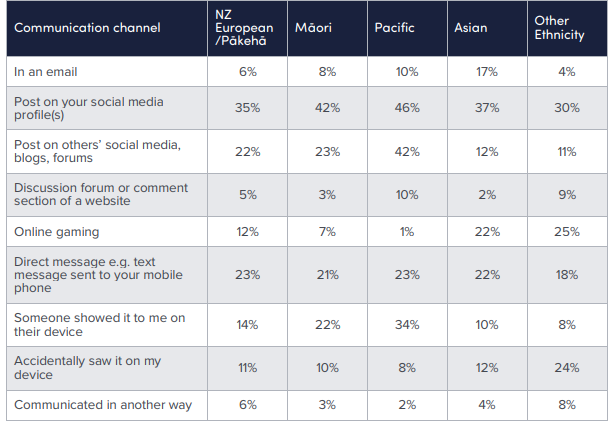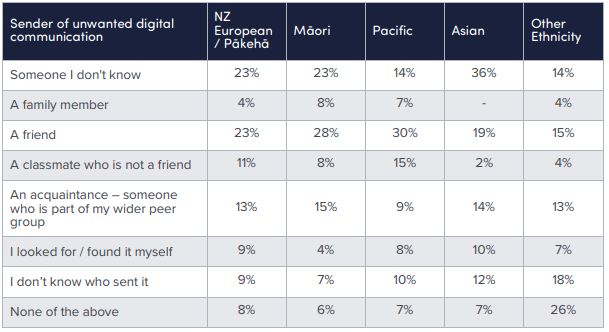Māori teens, especially girls and those with a disability are at higher risk than any other ethnic group in New Zealand to be harassed and to receive unsolicited nude images.
The latest NetSafe report shows that Māori are more likely to be harassed online via unwanted communications. The most common types of unwanted digital communications were: being contacted by a stranger and accidentally seeing inappropriate content online. NetSafe other report states Māori are more likely to receive unwanted nude images and or requests for nude images.
This is an increasing concern for Māori teenagers online and the lack of targeted resources to assist Māori from online predators. More concerning is the fact that Māori females and those with disabilities are even more vulnerable to online harassment.
I was interviewed by He Kawe Kōrero on Tuesday on this matter @kawekorero . There is some great thoughts from the presenters to assist whanau.
Specific Māori Key highlights
- 14 and 15 year old Māori girls are the most vulnerable, even more so if the teen has a disability.
- Māori teens were significantly more likely to have lies or rumors spread about themselves (33%) and have been called names they did not like (33%) compared to other ethnic groups.
- The percentage of Māori teens (16%) reporting to have been threatened online was higher than for European/Pākehā teens (11%) and double that of Pacific teens (8%).
- Compared to other ethnic groups, Māori and Pacific teens were more likely to report receiving unwanted digital communications across a range of different types.
Channels for receiving unwanted digital communications.
Māori are more likely to be harassed on social media and via cell phone text messages. This is likely as a result of research produced in 2015 by Te Puni Kōkiri that Māori are high users of social media and cell phones.

Senders of unwanted digital communications
Māori are more likely to be harassed by a friend or a stranger.
This could be a two pronged explanation. One that this is reflective of New Zealand society’s unconscious bias and racism or from my personal experience as an online Māori commentator is that if you make any comments online about Māori rights and beliefs, there is a torrent of online abuse aimed at me. This raises the need for the same research to be completed for adults.

Experience of digital harm
Māori are more likely than other ethnic groups to have had lies and rumors spread about them, called names.

Confidence in using digital tech and online safety knowledge.
According to NetSafe;
- Pacific and NZ European/Pākehā teens were more confident about their digital competencies (46%). Compared to Māori (39%) and Asian teens (36%).
- 29% of participants said they know “a lot” about online safety, while 58% knew “a fair amount”. Those who said they knew “not that much” represented 13% of total responses. Pacific (26%) and Māori teens (17%) reported knowing “not that much” about online safety, in in contrast with other ethnic groups.
- The percentage of Māori (55%) and Pacific teens (48%) who reported having looked for support from their parent or caregiver was higher than in other ethnic groups.
The fact that Māori and Pacific teenagers are looking to their parents and whanau is typical of Māori culture. But it does again raise and issue that we need to have better net safety resources created for Māori and whanau. Examples include the fact we have generations of children in our education system who were solely educated in the Kōhanga Reo and Kura Kaupapa Māori environments. Te Reo Māori is their first language and they are full immersed in Māori culture.

Leave a Reply
You must be logged in to post a comment.